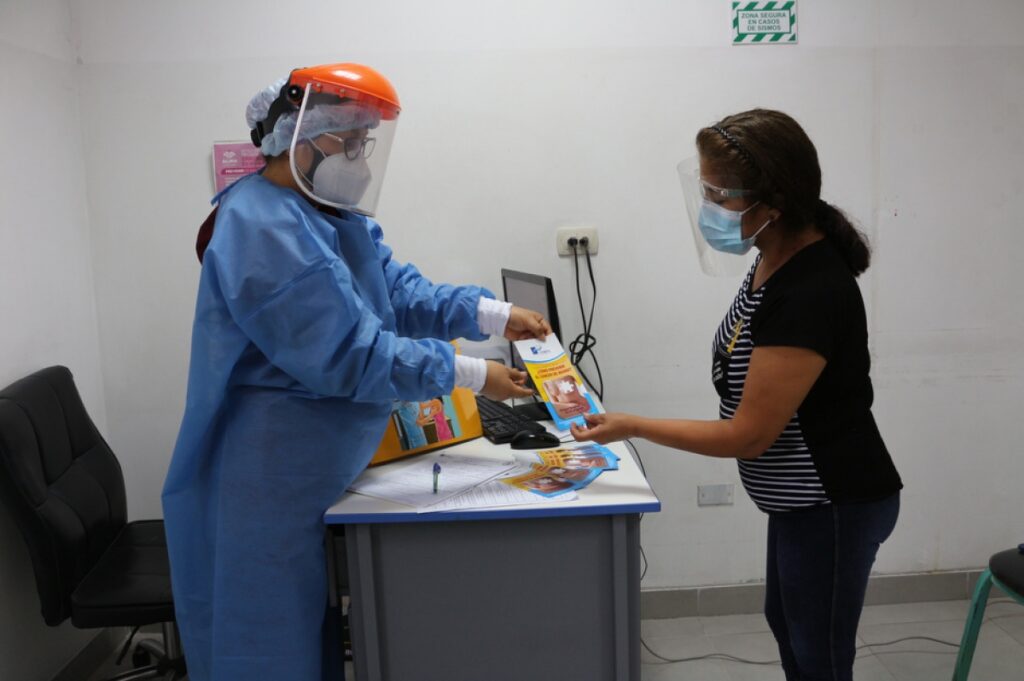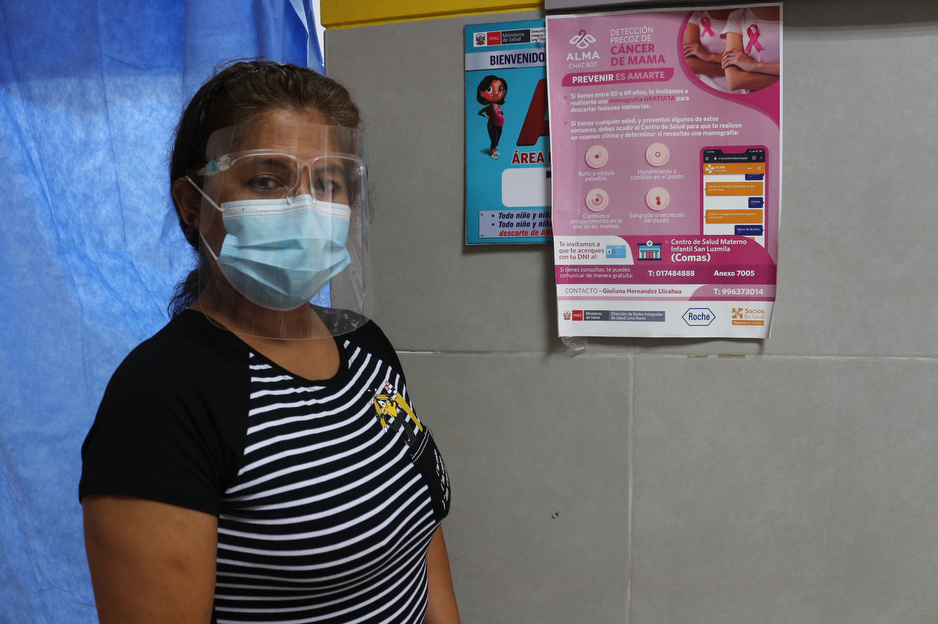Delivering Breast Cancer Care In Peru

Innovative app connects women with care, treatment
Posted February 9, 2021

When Vania Lariza Vargas took her mother to the clinic for an appointment, she wasn’t thinking about her own health. It wasn’t until a community health worker approached her and struck up a conversation about the importance of detecting breast cancer early that she decided to sign up for a free screening from Socios En Salud, as Partners In Health is known in Peru.
First came a check-up with an obstetrician. Then, a mammogram at the local hospital. That’s when Vargas found out she would need a biopsy.
“In that moment, I felt very worried, but I knew it was necessary to continue,” she says.
The diagnosis came fifteen days later: breast cysts. It came as a surprise to Vargas, but the obstetrician urged her not to worry. She was given information about breast cancer, taught how to perform a self-exam, and advised to return in six months for a follow-up mammogram, helping her find some relief amid the confusion. And a community health worker accompanied her throughout the process, offering guidance and support.
“Now I feel very good,” says the 51-year-old. “Much calmer.”
Vargas is one of 700 women who have received breast cancer screenings through Socios En Salud’s ALMA program. Since August 2020, the program has provided screenings, treatment, and care to women over 40 years old in Carabayllo, a community 20 miles north of Lima. And that care has continued amid the pandemic, even as Peru’s hospitals have been forced to prioritize COVID-19 patients, creating additional hurdles for patients in need of lab tests and complex care only available at a hospital.
Breast cancer is the most common cancer in women worldwide. Among Peruvian women, it is the third cause of cancer death. But care in communities like Carabayllo and Comas, impoverished by systemic injustice, can be hard to come by. That’s why Socios En Salud, after responding to an outbreak of multidrug-resistant tuberculosis (MDR-TB) in 1994, has since deepened its partnership with Peru’s Ministry of Health and strengthened Carabayllo’s health system.
That vital work continues with the ALMA program. ALMA uses flyers, canvassing, and a chatbot app to extend clinicians’ reach beyond people who usually set foot in a clinic. Women of all backgrounds—from stay-at-home mothers to fruit sellers at the market—can download the app onto their phones and access health services.
The steps are simple. The chatbot, operated by medical staff, asks the women a series of basic questions to screen for breast cancer signs and symptoms. Then, as needed, the chatbot helps them schedule a check-up at the nearest health center, where they can receive medical advice and referrals. While virtual, these message exchanges are crucial to connecting women with breast cancer care and treatment, especially during COVID-19.
“Breast cancer is often a silent enemy,” says Dr. Giuliana Hernandez, an obstetrician with Socios En Salud who directs the ALMA program. “That’s why prevention is essential for early detection.”

Even if they aren’t currently experiencing breast discomfort or injury, women must understand the signs and symptoms to watch for—and how to get help.
“It is important to do a breast self-exam once a month, as well as have a mammogram performed annually, so that we can detect any type of abnormality in time,” says Dr. Yesenia Juárez, an obstetrician at the Santa Luzmila II Maternal and Child Health Center.
In addition to treatment and care, the ALMA program seeks to educate the community and fight the stigma and misinformation around breast cancer. Women like Vargas, who sought help and developed a treatment and care plan, are key to engaging patients, families, and communities in difficult but important conversations around breast health.
As hard as it has been, the process has made Vargas an advocate. Nowadays, she urges women in her community to seek care early—not just when they feel pain or discomfort.
“It is in our hands to detect breast cancer early. Always keep in mind that without health, you have nothing,” she says. “I have grandchildren and I want to see them grow up. I want to visit them and hug them again—to enjoy them for much more time to come.”
Article originally published on pih.org.
See how the Zanmi Lasante team is providing care for breast cancer patients in Haiti.



